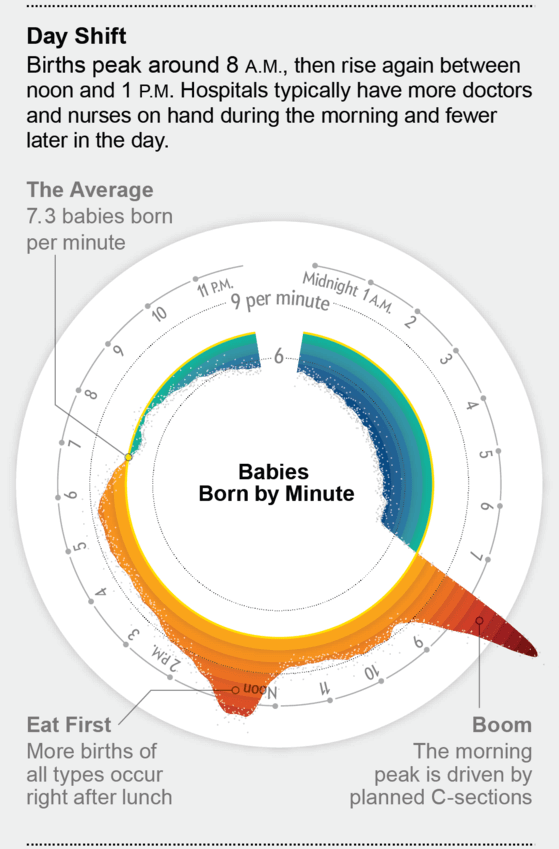Based on the stories we share, it would be easy to imagine that when a baby is born is random. In the U.S., however, weeks in September have 5 to 10 percent more births than weeks in January. Twelve thousand babies are born on a typical Tuesday compared with 8,000 on a typical Saturday. Sixty percent of babies are born during the day, between 6 A.M. and 6 P.M. And, 3.5 times as many babies are born at exactly 8:00 A.M., the most common minute to be born, than at the least common, 3:09 A.M.
…
Why? Where do these repeating patterns come from? Why is there so much difference in the numbers of babies born during some times of the day than others?
…
In the U.S., 32 percent of births are C-section surgeries, another 18 percent are the result of induced labors and 50 percent are “natural” (vaginal deliveries without induction). If we break down the data by the method of delivery, we see a distinct rhythm for each type of delivery method.

The GLP aggregated and excerpted this blog/article to reflect the diversity of news, opinion, and analysis. Read full, original post: Why Are so Many Babies Born around 8:00 A.M.?































